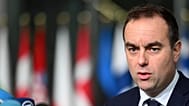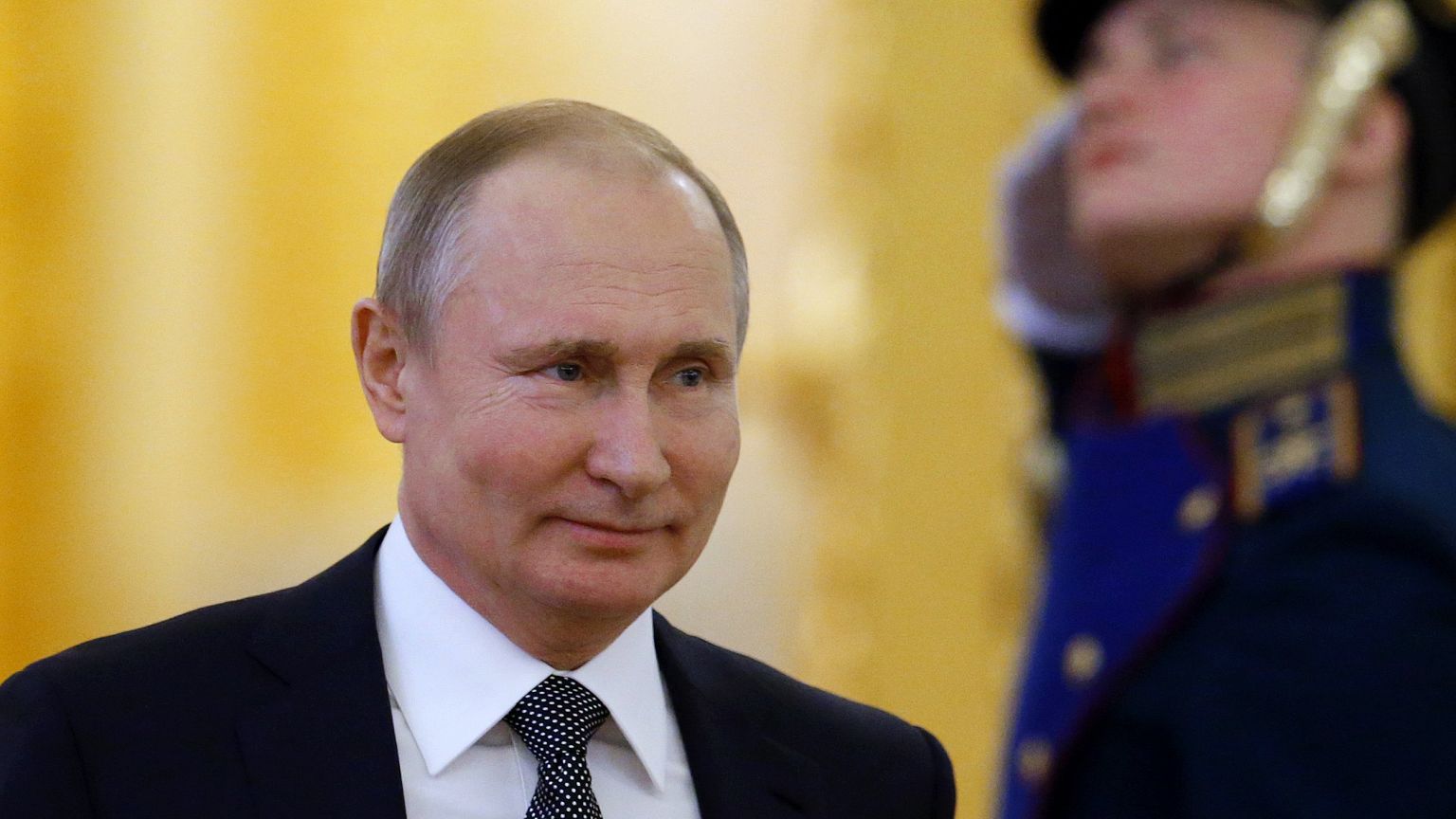Mega-rich Russians no longer hold sway over the Kremlin the way they used to, according to experts.
LONDON — The U.S. slapped fresh sanctions on several wealthy Russians with ties to the Kremlin on Friday, a move trumpeted as one of the most aggressive actions taken against Moscow by the Trump administration.
But some experts have warned that trying to squeeze these so-called oligarchs will do little to immediately harm Russian President Vladimir Putin — and is unlikely to bring about a significant change in his policies that have vexed the West in recent years.
Among the 24 Russians and 14 companies sanctioned by the Treasury there were seven oligarchs, people who have amassed vast fortunes in often shady circumstances thanks to their close ties with the Kremlin.
"I'm all in favor of striking back against these corrupt oligarchs," said Mark Galeotti, a senior researcher at the Institute of International Relations in Prague. "But if we think this is going to make Putin think twice, that's a big mistake."
Among those named was Oleg Deripaska, a man known not just for the billions he accrued as an aluminum magnate but also because of his ties to former Trump campaign chairman Paul Manafort.
Another, Kirill Shamalov, is reportedly Putin's son-in-law and Russia's youngest billionaire thanks to his large stake in the petrochemical giant Sibur.
Igor Rotenberg is the son of Arkady Rotenberg, Putin's childhood friend and erstwhile judo sparring partner.
Also sanctioned were Vladimir Bogdanov, Suleiman Kerimov, Andrei Skoch and Viktor Vekselberg.
They were punished because of what the Treasury called Russia's "malign activity around the globe," namely its actions in Ukraine, Syria, and its attempts to meddle in Western elections, including in the U.S.
"The Russian government operates for the disproportionate benefit of oligarchs and government elites," the Treasury said, adding that these people "who profit from this corrupt system will no longer be insulated from the consequences of their government's destabilizing activities."
Pressuring Putin's rich friends equates to pressuring Putin — at least that's the theory.
"The guys we're talking about now, they are very, very rich, but they do not have power over the Kremlin."
However, according to experts like Galeotti, this thinking is based on an outdated understanding of the role oligarchs play in Putin's Russia.
"No one gets to be rich in Russia and not have a relationship of some sort with the Kremlin," Galeotti said. "The guys we're talking about now, they are very, very rich, but they do not have power over the Kremlin."
It's certainly true that in the years after the fall of the Soviet Union, people who made lots of money from the carve-up of state resources held considerable sway. That all changed under Putin, however, with the Russian president making it clear that he wouldn't tolerate such behavior.
This shift severely weakened the role of the oligarchs in Russian political life, according to Jonathan Eyal, international director at the Royal United Services Institute, a London think tank known as RUSI.
"Today, it is not like the Yeltsin period, where the oligarchs told the president what to do," Eyal said, referring to Boris Yeltsin, who was Russian president between 1991 and 1999. "These oligarchs are not likely to sway Putin's hand about the major things that he wants to do."
This is the same point made by Kremlin spokesman Dmitry Peskov this week.
"The phrase 'Russian oligarchs' is considered inappropriate," Peskov told reporters. "The time when there were oligarchs in Russia passed long ago. There are no oligarchs in Russia."
Not everyone agrees that the latest U.S. sanctions won't hurt Putin.
On Twitter, financier and longtime Putin critic Bill Browder called the news "huge" and commended the government for "finally hitting Putin and his cronies where it counts."
And while analysts like Eyal and Galeotti caution that the sanctions may not change Russian policy more broadly, that doesn't mean the moves are useless, they add.
"The last thing that the oligarchs appreciate is being put on lists that make it very difficult for them to travel abroad, buy property abroad, have their girlfriends abroad or send their children for education abroad, all the things that makes them enjoy the finer things in life," Eyal said.
Despite their reduced importance, Eyal still sees the oligarchs as one of the "pillars of the regime," adding that "if the pillars start suffering themselves, then there is a cumulative impact" that could have some influence on Putin if combined with other measures.
"The sanctions are not what's going to change Russia's behavior," he added, "but they are intended to increase the costs of the defiance of Putin of international norms."
"The sanctions are not what's going to change Russia's behavior, but they are intended to increase the costs of the defiance of Putin of international norms."
Galeotti also stressed that the sanctions should be welcomed as a means to clean out dirty money in the West — just not as a way to curb Putin's foreign policy.
Part of the reason for this, according to many analysts, is that the Russian president is a man who is not so much interested in wealth but in power.
"The thought that Putin is going to be bothered, to the point of actually reversing what is a clearly not just a pragmatic policy but one that he genuinely believes in, because there's a few hundred million in stake in condos in Florida or whatever, I think that's misunderstanding the man," Galeotti said.
Another problem that some critics have identified with Friday's sanctions is that the people targeted will have likely seen this coming a mile away.
All of the oligarchs named had already been mentioned on a much larger list of Russian billionaires released by the Treasury in January.
This list was widely mocked because it was cribbed from Forbes' ranking of the "200 richest businessmen in Russia 2017."
And what it effectively did was give oligarchs time to hollow out investments in the U.S. that will be impacted by the new restrictions, according to some experts and U.S. officials.
"Those people have a thousand different ways to channel money that will go unchallenged by any sanctions," according to Mathieu Boulègue, a research fellow at the London think tank Chatham House. "It's a headache but it's not a problem for Russia."
He added that "sanctions do not affect the Russian leadership the way we would want them to. They are not a magic wand we can agitate in front of the Kremlin and hope to curb Putin's cost-benefit calculus."
This echoed what one U.S. official told NBC News ahead of Friday's sanctions. "They had to know these were coming," the official said, referring to the oligarchs.
Nor will the sanctions cause the Russian public to turn against their strongman leader, or foment a debate inside the country about the direction of its foreign policy, according to Boulègue.
"Sanctions have been in place since 2014 and the Russian state has transformed them into a show of force in their propaganda," he said. "Russia has learned to live with them. They are a new normal in relations with the West."














